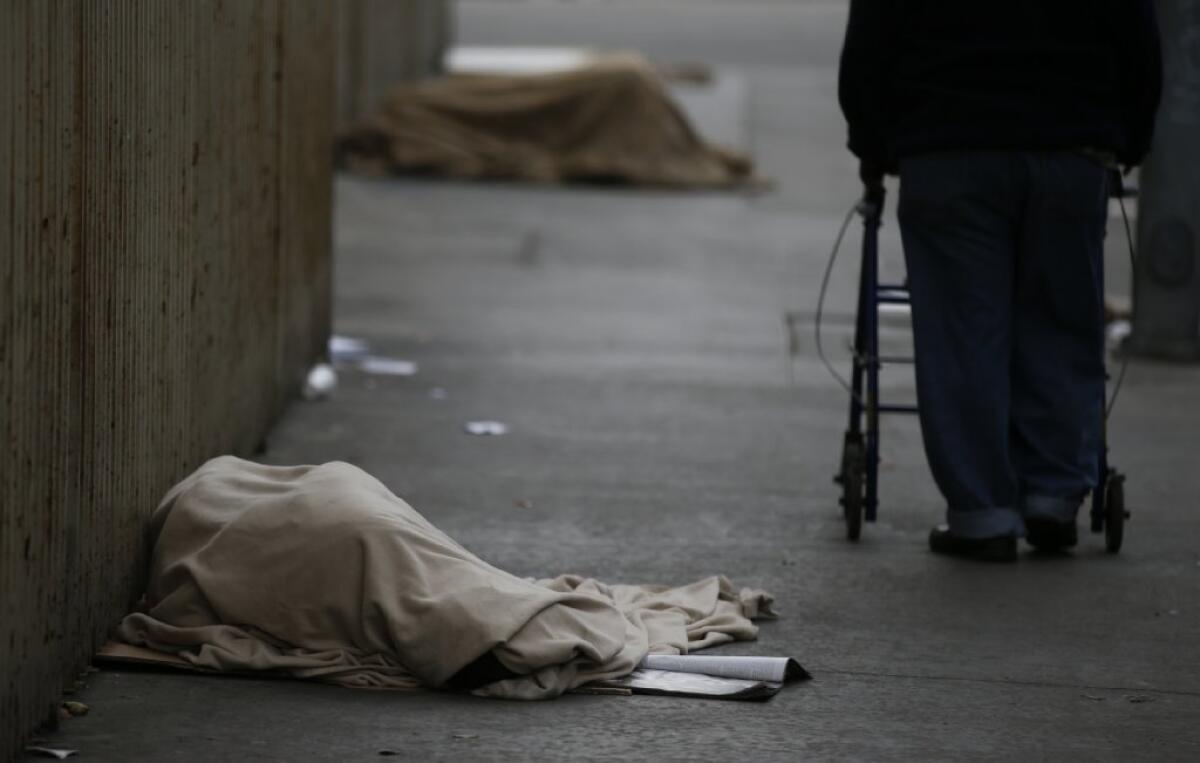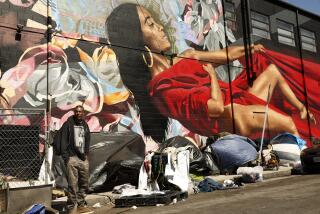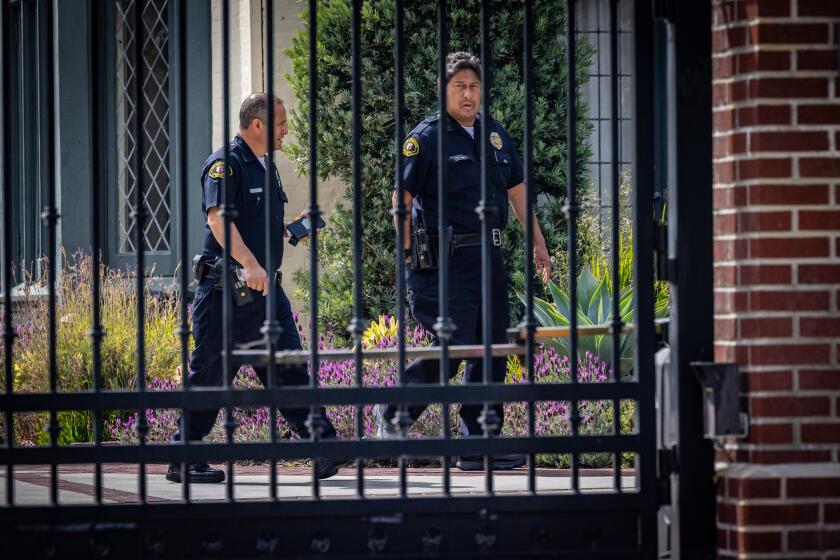County report lays out options for tax measures to fund homelessness efforts

Homeless men and women draped in blankets sleep on the sidewalk along Wall Street in downtown Los Angeles in January.
Los Angeles County officials, looking for ways to pay for ambitious plans to reduce homelessness, will consider asking voters to increase sales or parcel taxes or place new taxes on medical marijuana or the income of millionaires.
The city and county adopted parallel plans last month to address the growing homelessness problem. The number of people sleeping in shelters, on the streets, in cars and in makeshift encampments increased 12% countywide from 2013 to 2015, to more than 44,000, according to Los Angeles Homeless Services Authority surveys.
The county set aside about $150 million to pay for its plan over the next two years, and the city is devoting about $30 million this year to homelessness programs. But officials on both sides have acknowledged that more and longer-term funding is needed to make a serious dent in the problem. City analysts projected that it will cost at least $1.85 billion over the next decade to create the needed housing, not including the price of providing services.
Now it appears at least possible that voters could be asked to decide on two separate funding initiatives, introduced by the city and the county, although it remains unclear whether one or both would appear on the ballot this year.
County analysts laid out five funding options in a report released Wednesday: a parcel tax; redirection of some money from Measure B, a countywide tax for trauma care; a new tax on medical — and perhaps in the future, recreational — marijuana; an increase in the countywide transaction and use tax; and a new “millionaire’s tax” on personal income over $1 million, like the one that currently funds mental health services around the state.
The last option would require action by the state to allow counties to seek such a tax. And the countywide transaction tax, collected along with sales tax, which is currently 1%, can legally go up to only 2%.
All the tax options would require approval by two-thirds of voters if funds were to be specifically dedicated to homelessness. But the marijuana and sales taxes could be passed by a simple majority if the tax were not specifically tied to homelessness. Voters could take an advisory vote in that case, asking that the funds be put toward homeless initiatives.
The county chief executive office, which produced the report, noted that county health departments said redirecting Measure B money would cause budget deficits for them.
The report did not include estimates of how much money could be raised by each option. County spokesman David Sommers said staff members are still doing that analysis.
A consultant will begin polling to gauge support for the other options to potentially be placed on November’s ballot. The ballot deadline is Aug. 12.
City leaders have also explored the possibility of going to voters for a tax increase. County Supervisor Mark Ridley-Thomas said he anticipated that part of the proceeds of any countywide measure would be allocated to cities.
“There are things the county can and should do that cities can’t do,” he said.
The county funds health and mental health, social welfare and some housing programs, while the city has jurisdiction over land use and policing in the areas where most homeless people live and where much of the county’s new affordable housing would be built.
Los Angeles Mayor Eric Garcetti said in a statement that the homeless efforts “will require investments at every level of government and could include voter approved measures.”
“I look forward to hearing more about which options are feasible for the county,” Garcetti said. “They have been a critical partner to the city in our efforts … and we look forward to continuing our collaboration.”
Ridley-Thomas said he did not see any way to raise the money needed for new housing and services without a tax measure.
“There’s no way to do what needs to be done without going to the ballot,” he said.
His colleague Sheila Kuehl agreed that added funding is needed, but she was circumspect about the possibility of placing a homeless funding measure on this year’s ballot, which is already likely to be crowded with funding measures, including a proposed sales tax increase for transportation projects and a parcel tax to fund county parks.
“You always have to really be cognizant about voter fatigue about taxing themselves,” Kuehl said.
City Administrative Officer Miguel Santana said that county and city officials will coordinate on whatever measures are eventually placed before the voters, but that it’s possible there would be two separate initiatives. City analysts are finishing their own analysis of possible revenue streams.
“We just have different jurisdictional roles and responsibilities, both in terms of revenue streams and in terms of how it’s going to be implemented,” Santana said. “I think it’s going to take multiple sources of funds.”
Gary Blasi, a longtime homeless advocate and retired professor at the UCLA School of Law, called the report “a tiny step in the direction of finding out where the money might be,” but questioned why the report did not also look at the possibility of a countywide bond issue to build housing. Sommers said the funding options included in the report could be used to pay for debt service on a bond among other options.
Twitter: @sewella
ALSO
These newly discovered bacteria can eat plastic bottles
A woman gave birth, returned to jail and died. Now her family wants answers
Aiming to drive down gun deaths? Put these three laws on the books, researchers say
More to Read
Start your day right
Sign up for Essential California for news, features and recommendations from the L.A. Times and beyond in your inbox six days a week.
You may occasionally receive promotional content from the Los Angeles Times.







